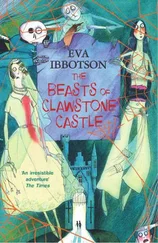Ibbotson, Eva - Magic Flutes
Здесь есть возможность читать онлайн «Ibbotson, Eva - Magic Flutes» весь текст электронной книги совершенно бесплатно (целиком полную версию без сокращений). В некоторых случаях можно слушать аудио, скачать через торрент в формате fb2 и присутствует краткое содержание. Год выпуска: 2011, Издательство: Macmillan Publishers UK, Жанр: Старинная литература, на английском языке. Описание произведения, (предисловие) а так же отзывы посетителей доступны на портале библиотеки ЛибКат.
- Название:Magic Flutes
- Автор:
- Издательство:Macmillan Publishers UK
- Жанр:
- Год:2011
- ISBN:нет данных
- Рейтинг книги:3 / 5. Голосов: 1
-
Избранное:Добавить в избранное
- Отзывы:
-
Ваша оценка:
- 60
- 1
- 2
- 3
- 4
- 5
Magic Flutes: краткое содержание, описание и аннотация
Предлагаем к чтению аннотацию, описание, краткое содержание или предисловие (зависит от того, что написал сам автор книги «Magic Flutes»). Если вы не нашли необходимую информацию о книге — напишите в комментариях, мы постараемся отыскать её.
Magic Flutes — читать онлайн бесплатно полную книгу (весь текст) целиком
Ниже представлен текст книги, разбитый по страницам. Система сохранения места последней прочитанной страницы, позволяет с удобством читать онлайн бесплатно книгу «Magic Flutes», без необходимости каждый раз заново искать на чём Вы остановились. Поставьте закладку, и сможете в любой момент перейти на страницу, на которой закончили чтение.
Интервал:
Закладка:
He flushed, on delicate ground, and Tessa, on whose lap the soaking and frustrated water spaniel had settled, felt the familiar guilt intensify.
Guy had paid generously for Pfaffenstein. The cheque she had been handed, signed by the Associated Investment Company, in these inflationary times ran into millions of kroner. Half of this would go in trust for the aunts, and there were debts to be paid, but even so it left her with enough money to shore up Maxi’s imperilled Wasserburg and put heating into the mouldering rooms.
‘Maxi, I haven’t got quite as much money as your mother thinks, perhaps. My father left a lot of debts and they have to be paid. But I’ve enough all the same to—’ She tried again. ‘Would you let me help a little with Spittau? Do the roof at least, so that it can be preserved? I mean, we’re almost relatives, aren’t we?’
Maxi’s eyes became vibrantly convex; his duelling scar turned livid. His manhood had been outraged, his honour impugned. ‘How can you suggest such a thing, Putzerl?’
‘I’m sorry, Maxi. I didn’t mean any harm. Only, I don’t know any other way to marry except for love. A particular kind of love. And that isn’t . . . how I love you,’ said Tessa, her voice very low.
‘But Tessa, we aren’t like that. Like ordinary people. I mean, being in love.’
‘I’m an ordinary person.’
He sighed. Her republicanism again.
‘I don’t think I am going to marry at all, Maxi. I think I’m going to live for art and bring music and theatre into people’s lives.’
A slight tightening of the jaw – the beginning of a yawn, which always attacked him at the mention of art – now troubled the prince. Bending to conceal it, he incited the wolfhound who caught Maxi rather painfully under the chin as he reared up in hope of land.
‘Are you sure, Putzerl? Are you absolutely sure?’ said Maxi when he had quietened the animal. ‘Couldn’t you please, please say yes?’
Tessa’s heart smote her. She knew only too well what Maxi would have to endure if his suit did not prosper. ‘I’m so sorry, Maxi.’ She put down the tiller lines, pushed the spaniel gently from her lap and, overwhelmed by pity, leaned forward to kiss him on the forehead. She too could perform life’s most varied actions in a boat.
The kiss was seen by Nerine on the terrace, by the Swan Princess and thus the aunts in the West Tower, by Monteforelli and Maxi’s valet and many others in the castle – and misinterpreted by all of them.
Witzler sat in the small room in the East Tower, adjoining the theatre, which he had used as an office since he came to Pfaffenstein. Out in the courtyard the men were loading scenery. The stage crew would leave at dawn for Vienna, with the principals and orchestra following by train.
But only for a while, Jacob was sure of that. His eyes closed in a moment of blissful remembrance. If he lived to be a hundred, nothing could dim the triumph of the previous night: old Monteforelli, that reprobate who knew every Mozart score by heart, hobbling backstage to throw his arms round him . . . the Comte d’Antibes throwing his diamond tie-pin on to the stage . . . But it was not only that, or the half-hour of applause, or the quick emotional handshake of Mendelov before that acid-penned critic went back to Vienna. It was the justification of a life spent in pursuit of an ideal. The journey that had begun with the visit of that tatty touring company playing Carmen had been justified last night.
What a week it had been altogether! Bubi was sunburnt and well, the Rhinemaiden’s nerves were such that she could probably sustain an entire performance of The Ring. And this morning Klasky had stolen off with his brief-case and a look in his eyes that Jacob, who had nursed many talents, had recognized with excitement. If this glorious week should also see the completion of Klasky’s opera!
Should he suggest to Farne that he install the company permanently at Pfaffenstein, or would it be best to keep a base in Vienna? Suppose he bought a little house in the village? They could keep a cow; Bubi would go to bed in time and wear lederhosen, mused Jacob, as the sound of Boris practising his yodelling floated in at the window. Everyone was out there waiting for the result of his interview. He glanced at his watch, but punctual to the minute Farne knocked and entered.
Guy, too, was sunburnt and fit. Since the previous night’s conversation with Nerine, he had taken a satisfactory amount of exercise: a pre-breakfast game of squash, tennis with one of his guests, then a ride in a neighbouring valley. Nevertheless, it was not the picture of a sporting gentleman relaxing on his estate that Guy suggested to Jacob, who felt rather that he was about to be interviewed by some beast of prey.
He rallied, however, and said, ‘Well, Herr Farne, you are satisfied, I think, eh?’
‘Yes. The performance was outstanding! I told you so last night. The interpretation was right, the balance, the detail too. I’ve never seen a better Magic Flute and I never will.’
He had got out his cheque book but even this object, so beautiful in Jacob’s eyes, did not deflect the impresario into hasty or impatient greed.
‘Of course, in this theatre, Figaro would be perfect. The Marriage of Figaro for your marriage.’ He waxed eloquent on the scoring, the ensemble writing of this most human and moving of operas. ‘Though of course it would be unwise to concentrate too much on Mozart because of competition with Salzburg. And in any case you may prefer something very light. Rossini, say . . . The Barber . . .
Once again he elaborated and only noticed after a while that Guy was silent. He had unscrewed his fountain-pen and was writing a cheque. ‘This is the balance of what I owe you. Will you see that it is correct?’
‘Yes,’ said Jacob, looking down. ‘It’s perfectly correct. Thank you.’
But for once money, so deeply a part of Jacob’s life, was not what he wanted to discuss. Indeed, Farne’s pragmatic and almost mercenary attitude shocked him a little. Genuinely, vociferously, Jacob was gripped by the vision of the music he and the Englishman would make here at Pfaffenstein.
‘Of course it would be possible, for the actual wedding, to stage a performance out of doors. On the lake, even, on a raft as in Boden. I don’t usually care for this because of standards and it will be difficult to persuade Klasky: the acoustics . . . the mosquitos . . . and he cannot swim. But if you wished—’
Guy had screwed up his pen, returned it to his pocket and straightened up. His voice when it came was harsh, his appearance more Mephistophelean than ever.
‘Let me make myself clear, Witzler. There will be no more opera staged here at Pfaffenstein . . . And no more music. Not for my wedding. Not ever.’
Jacob stared at him, sweat breaking out on his forehead. His ulcer, which he had hardly noticed during the last few days, bit agonizingly into his gut.
‘There was something wrong?’ he stammered. ‘Was it because Sarastro did not sing the E below stave? You see, I think what Mozart wanted there was not a trick but—’
‘I have told you,’ interrupted Guy, ‘the opera was perfect. That has nothing to do with it. My contract with your company is now terminated and it will not be renewed.’
The round little Jew sat down. He seemed suddenly to have shrunk, and one pudgy hand rubbed at his forehead as though to erase a pain.
‘Could one ask why?’ he said after a while.
‘That is my business, surely?’
Jacob nodded. ‘Yes . . .’ he said. ‘I’m sorry . . . Yes . . .’
Guy had walked to the turret window. He had dismissed hundreds of people in his time, blasted them and forgotten them. But he knew what he had bought when he bought the International Opera Company: the dedication, the ceaseless, gruelling work, the hopes . . .
Читать дальшеИнтервал:
Закладка:
Похожие книги на «Magic Flutes»
Представляем Вашему вниманию похожие книги на «Magic Flutes» списком для выбора. Мы отобрали схожую по названию и смыслу литературу в надежде предоставить читателям больше вариантов отыскать новые, интересные, ещё непрочитанные произведения.
Обсуждение, отзывы о книге «Magic Flutes» и просто собственные мнения читателей. Оставьте ваши комментарии, напишите, что Вы думаете о произведении, его смысле или главных героях. Укажите что конкретно понравилось, а что нет, и почему Вы так считаете.












